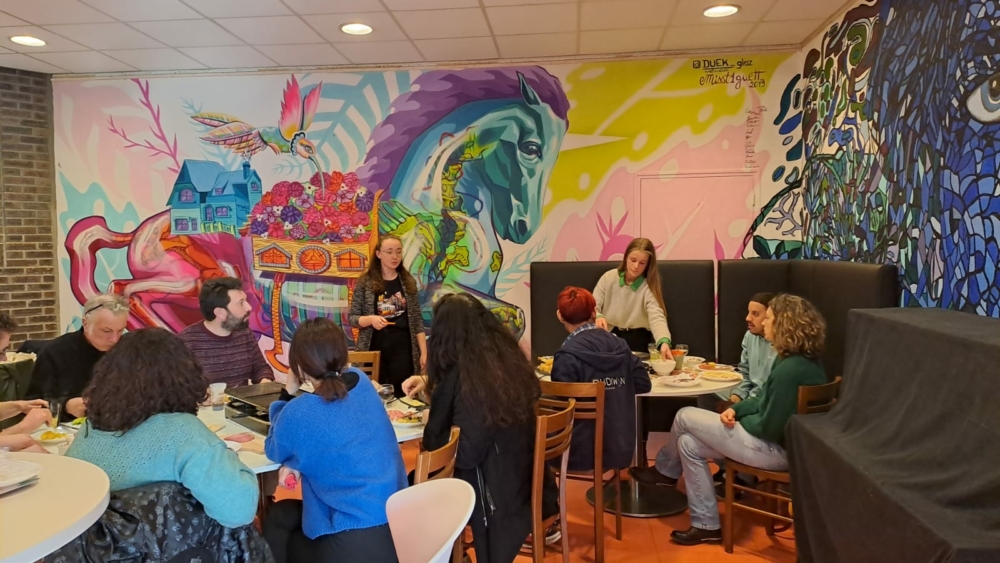“Youth work” and “social entrepreneurship” are two distinct concepts, but they can also be linked, particularly when young people are involved in entrepreneurial initiatives with a social vocation. Let’s briefly explore these two concepts:
Youth Work
Youth work encompasses a range of activities and initiatives aimed at meeting the needs of young people, fostering their personal, educational, and professional development, and promoting their active participation in society. Youth organizations, educational programs, camps, volunteer projects, and other activities can be considered part of youth work. These initiatives generally aim to help young people acquire skills, develop self-confidence, and become responsible citizens.
Social Entrepreneurship
Social entrepreneurship refers to the creation and management of businesses or organizations whose primary mission is to solve social or environmental problems. Unlike traditional businesses, social enterprises have a dual objective: to achieve a positive social or environmental impact while generating revenue to support their activity. Social entrepreneurs seek to innovate and find sustainable solutions to societal problems. Young people can be heavily involved in social entrepreneurship, either creating their own social enterprises or joining established organizations. Their energy, creativity, and commitment make them key players in tackling issues such as poverty, education, access to healthcare, and other social challenges.
The link between Youth Work and Social Entrepreneurship
Youth work can serve as a springboard for social entrepreneurship by providing young people with the necessary skills, raising their awareness of social issues, and encouraging them to be agents of change. Educational programs focusing on social entrepreneurship can also be integrated into youth work to stimulate creativity and social initiative among young people.
The Journey of Intercultura’s Young People
In the beginning, the young people met by the Intercultura association come from various backgrounds: students, high-school pupils, young people who have failed at school, who have dropped out, or who are unemployed.
Intercultura gives them the opportunity to discover and gain skills through various mobility schemes, to get involved at the local level, and gradually to support them in leading and accompanying other young people.
These young people gain skills and self-confidence and then go on long-term mobility trips through the European Solidarity Corps. Afterwards, they participate in training courses (Kejal; CREOPSS), Erasmus internships, Erasmus for Young Entrepreneurs, etc.
Upon their return, they often want to get more involved, and that’s when Intercultura invites them to take some time out to “rave” and come up with new ideas and projects right up to the creation of their associations.

In this way, five new associations have been created by five young Intercultura volunteers:
Sokha: Dudiwan
Jeanne: Les Incorrigibles Optimistes
Loubna: SWAP
Lila: CulturArt Mixtape
Mylène: Odyssee
Conclusion
Youth work and social entrepreneurship are two areas that can reinforce each other, offering young people opportunities for personal development while inspiring them to make a significant contribution to society through entrepreneurial initiatives with a social impact.
“La Raclette à Projets”: events to present the new associations to the partner structures and young members of the Intercultura association.

